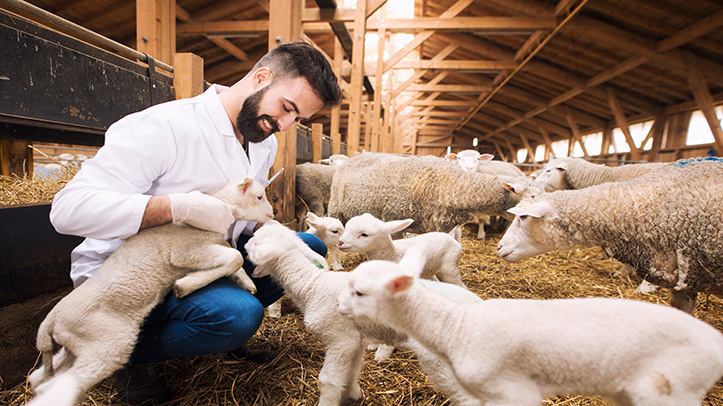A new British Veterinary Association (BVA) working group has convened to look at a possible reclassification of POM-VPS products, to POM-V, which has stirred a mixed reaction from key stakeholders.
The first meeting of the BVA’s Responsible Use of Anthelmintics for Grazing Animals working group took place on Monday, June 10.
BVA told OvertheCounter: “The ‘Responsible Use of Anthelmintics for Grazing Animals’ working group has been convened to develop BVA’s position on limiting the use of anthelmintics for grazing animals, potentially through reclassification, to reduce resistance and damage to the environment.
“The group comprises a range of experts including representa- tives from relevant BVA specialist divisions.”
An industry insider queried the evidence base prompting this possible reclassification.
“There are probably areas within both professions – vets and SQPs – where prescriptions of anthelmintics could be more robust,” the insider said. “Both professions ought to work to improve that robustness. If we don’t, as an industry, then every- body’s going to lose out, and not least animal welfare.
“There are areas of the country where provision of veterinary ser-vices is scant, but there is a good animal health distributor network with which farmers engage with, probably in preference to trying to engage with a veterinary surgeon who may have the animals under care. What we want to get away from is having two different entrenched positions.”
The insider highlighted that 80% of anthelmintic prescriptions currently go through the trade.
“If that was to suddenly stop, that capacity has got to be absorbed by the veterinary profession if it was going to come into POM-V, and I think that’s unlikely.”
Michael Seals CBE, AMTRA chair, said that the regulatory body is looking forward to con- tributing to the discussions.
He said: “The formation of the group does come at an interesting time given the recent update to the Veterinary Medicines Regulations which confirm the important status of SQPs and their prescribing abilities.
“We are all aware that the profession is facing many pressures at present such as the Competition & Markets Authority (CMA) review [into the vet sector], plus the ongoing skills shortages. It is good to see that the BVA is pre- pared to collaboratively work on this issue to reduce anthelmintic resistance.”
Vetpol director Caroline Johnson described anthelmintic resistance as a ‘really tough nut to crack’.
She added: “SQPs are the qualified professionals most often in the frontline in the fight against anthelmintic resistance. The devil is in the detail, and when you get into that detail you realise it is so tough that to place the burden of dealing with this devil solely on the shoulders of veterinary surgeons would be overwhelming and very likely, impossible.
“It is the kind of long-term problem that can only be dealt with effectively through the efforts of a strong, professional team that includes SQPs both within veterinary practice and other retail outlets.”
OvertheCounter understands that BVA recommended a change from POM-VPS to POM-V, which wasn’t included in the recent Veterinary Medicines Directorate (VMD) review of Veterinary Medicine Regulations, and this move is a backlash.
A stakeholder said: “This does concern me and comes at the same time as the CMA is looking at practices of vets, and the charging of veterinary products. It’s almost counterintuitive that the two things are happening at the same time – the VMD endorses multi-channel distribution, which supports the whole of the industry across the UK.”
OvertheCounter understands that key stakeholders, including AMTRA and AHDA, will be invited when the working group meets again.
“The animal health and welfare industry needs to be working closely together, with all prescribing channels supporting one another for the common good; SQPs supporting vets, and vets supporting SQPs.”
John Blackwell, vice chair of AMTRA, and a past president of BVA, said his view has always been to promote collaboration and oversight between both professional sectors.
“We have to recognise that the SQP channel is a professional sector,” he said.


